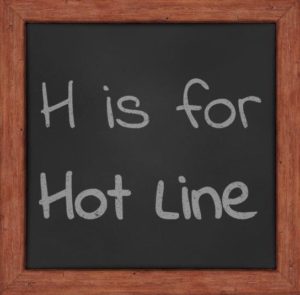 Copyright © 2018 by Barney Rosenberg
President, Ethics Line, LLC™
barney@ethicslinellc.com
Copyright © 2018 by Barney Rosenberg
President, Ethics Line, LLC™
barney@ethicslinellc.com
In previous articles I have written about fear in the workplace and the use of hotlines to address that and other pressing questions and concerns. This article falls in the category of an ounce of prevention being worth a pound of cure. Roughly 80% of calls to hotlines relate in one way or another to Human Resources issues. And most of those deal with a lack of respect in the workplace (the subject of a future article). Wouldn’t it be better to prevent the offenses in the first place? I am reminded of a call to a hotline that went like this. “My supervisor shouts at people and even uses profanity. I am a good, religious person and I am not used to being treated that way!” Companies often promote good individual performers to supervisory roles without any preparation for those roles. They are not prepared to manage the different ways people approach their jobs; their aspirations; their personal “calamities” that impact job performance; their strengths and areas for improvement. A wise person once counseled: “Remember the cube!” We all started out somewhere before some of us moved to the C-Suite, Mahogany Row, or even just a workspace with a door! How we treat those we supervise or manage is a reflection on who we are as people. Occasionally, we forget. We would never treat the spouse, son/daughter of our neighbor or friend that way. We would not want to be treated that way by our supervisors. It’s the Golden Rule, right! Maybe I can illustrate this Kindness thing with a couple of examples. I was once in a hotel room, settling in after a long trip and getting ready for the workday ahead. In the room next door was a couple (no idea what their domestic status was but it didn’t sound healthy!) At one point in their loud argument he shouted “You know what your problem is Andrea!) That is no way to begin a sentence if you really want Andrea to listen to you. I turned up the TV. Try this: You can always begin a sentence “I love you and….” Not such a good idea to begin that sentence “I love you but….” Or this example. Speaks volumes. It illustrates how tiny things can make a huge difference. It’s my favorite. Two almost identical sentences. What a difference a comma makes! “Do it right now!” or “Do it right, now!” Which would you rather hear from your boss? I don’t always get it right but I do try to remember the cube. I also think about Andrea from time to time. What has worked well for you? What small, simple acts of kindness would make all the difference where you work? Please share.

 Copyright © 2018 by Barney Rosenberg
President, Ethics Line, LLC™
barney@ethicslinellc.com
Copyright © 2018 by Barney Rosenberg
President, Ethics Line, LLC™
barney@ethicslinellc.com